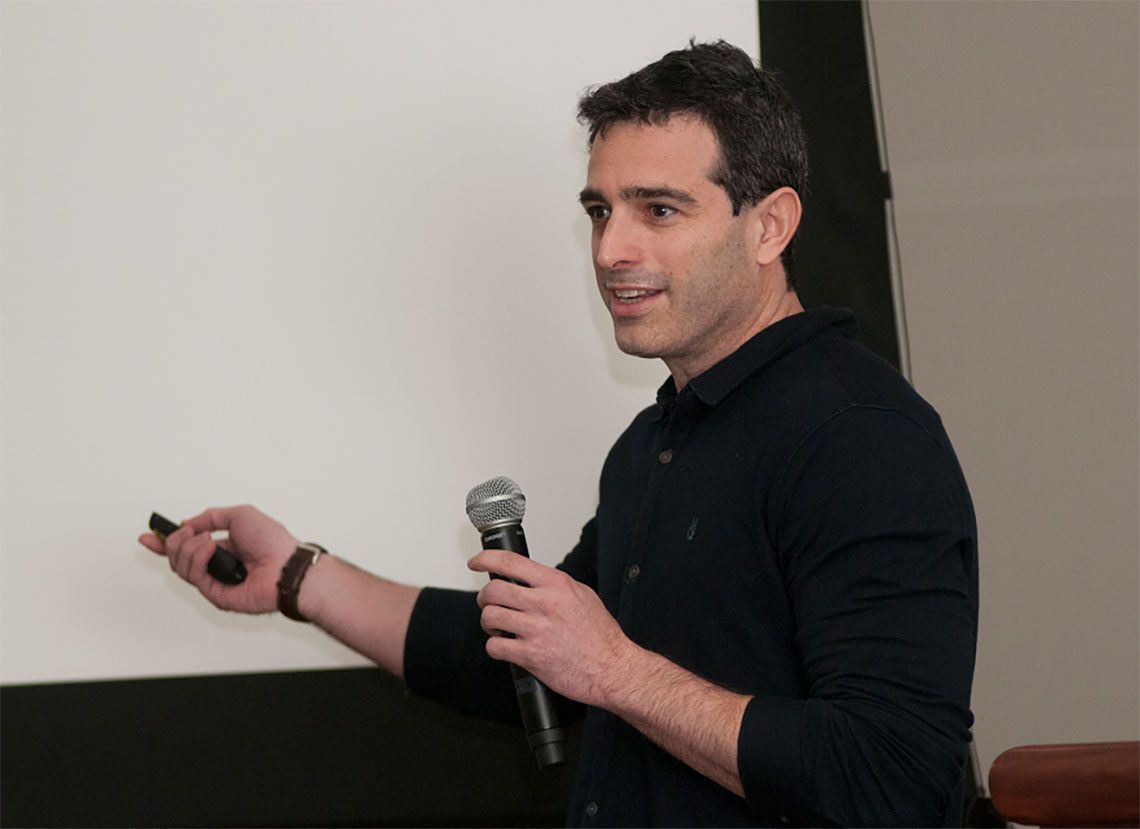
The tables filling the George Washington University’s (GW) Cloyd Heck Marvin Center on May 1 were ringed with neuroscientists and students — a rapt audience for the 5th Annual Neuroscience Symposium. The day-long event, sponsored by the GW Institute for Neuroscience (GWIN), revolved around “Evolving Brains: Genomes, Connectomes, and Diversity.”
“This fundamental issue touches on foundational questions in genetics, cell biology, physiology, and anthropology,” explained Anthony-S. LaMantia, Ph.D., professor of pharmacology and physiology at the GW School of Medicine and Health Sciences (SMHS) and director of GWIN. “In addition, the emerging consensus that many — if not all — brain diseases are ultimately diseases of circuitry has now placed the question of how human brain connectivity evolved at the center of efforts to understand neurodevelopmental and neurodegenerative disorders.”
Presenters at the symposium included seven faculty and students from GW and Children’s National Health System (Children’s National), as well as three renowned keynote speakers, Yoav Gilad, Ph.D., professor of human genetics at the University of Chicago; David Van Essen, Ph.D., alumni endowed professor of anatomy and neurobiology at Washington University; and Jon Kaas, Ph.D., Distinguished Centennial Professor of Psychology, associate professor of cell and developmental biology, and professor of radiology and radiological sciences at Vanderbilt University.
“[Our speakers for the day] really have provided us with a diverse, but nevertheless coherent, view of how to think about the brain, the underlying genomic constraints of building it, the way that it may be connected to ensure diverse forms of behavior, and finally, how throughout evolution, these final patterns of connectivity to ensure optimal function have emerged,” LaMantia said.
In the morning session, Gilad discussed developments in gene expression and protein buffering across primates, while Kaas, in the afternoon session, touched on posterior parietal cortical representations and their impact on basic behaviors, such as grasping, running and defensive movements, in mammals. Van Essen focused on the Human Connectome Project, which paints a comprehensive map of neuronal connections.
“For the Human Connectome Project, our objective has been to acquire high-quality data on structure function and connectivity in healthy adults,” Van Essen said. “It’s terrific data.”
GW faculty topics ranged from the genetics and biology of cognitive disorders to non-invasive neuroimaging of brain organization. This year’s symposium also featured poster presentations by students from both GW and neighboring institutions, such as George Mason University, American University, and the National Institutes of Health.
Although a date has not yet been set, plans are underway for the 2016 symposium. “We will be here next year, sometime at the end of April or the beginning of May,” said LaMantia. “I hope you’ll join us for the Sixth Annual GW Institute for Neuroscience Symposium.”
GWIN is jointly supported by SMHS, the GW Office of the Vice President for Research, and the Columbian College of Arts and Sciences at GW. GWIN, which now boasts more than 40 faculty members, also works in partnership with the Center for Neuroscience Research at Children’s National to facilitate the vital exchange of ideas and to support collaborative neuroscience research and training. The Institute offers seminars, graduate courses, research colloquia, and core services to enhance the scientific endeavors of GW and Children’s National investigators, fellows, and students.


